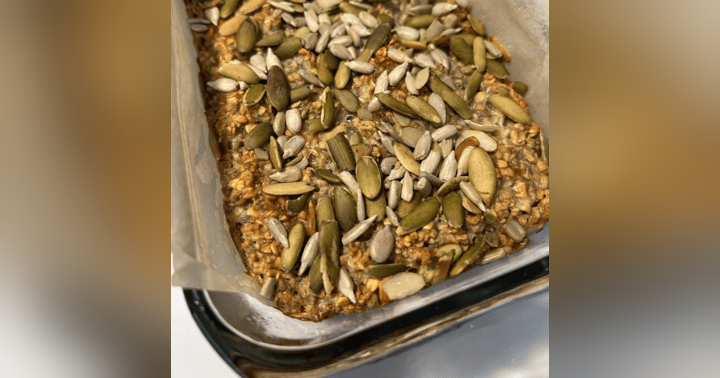Cancer-Related Fatigue

Fatigue is a common occurrence. Up to 45% of the population suffers from general fatigue. In fact, fatigue is the most common reason anyone seeks medical advice. General fatigue (defined as "not related to any underlying disease process") is often due to lifestyle factors, including poor sleep or lack of exercise.
Cancer-Related Fatigue (CRF) is another entity altogether.
CRF can be due to cancer itself, ongoing cancer treatment, or other underlying causes. Often, CRF lingers long after active cancer treatments are over.
Here is the definition according to the National Comprehensive Cancer Network (NCCN):
“Cancer Related Fatigue is a distressing, persistent, subjective sense of physical, emotional, and/or cognitive tiredness or exhaustion related to cancer or cancer treatment that is not proportional to recent activity and interferes with usual functioning.”
Note the last words, “not proportional to recent activity and interferes with usual functioning.” Regular fatigue is a normal physiological consequence of expending more energy than you produce, resulting in your body’s “request” that you relax, take a nap, slow down, or end your day’s activities early. When your body is fatigued from routine, day-to-day living activities (cooking, cleaning, meal prep/eating, etc.), that qualifies as interfering with “usual functioning.”
In short, your day-to-day activities require more energy than you can produce. Your only recourse is to find more energy or manage with what you have. We prefer to help you find more energy whenever that is possible.
It is not surprising that CRF comes with unique challenges not seen with general fatigue. Unlike general fatigue, improving sleep and getting regular exercise, while helpful, may not be enough to overcome CRF.
Let’s get one thing out of the way. There are drugs that act as stimulants, which may be necessary for some people with CRF who cannot manage it any other way. Before resorting to prescriptions for stimulants, the American Society for Clinical Oncology (ASCO) recommends the following:
Measures to take if you have CRF (per ASCO):
1. Get treated for medical conditions or causes that make fatigue worse.
2. Get moving.
3. Take time to relax.
5. Practice good sleep habits.
6. Engage in mind-body strategies, such as yoga.
7. Consider therapy and counseling.
8. Get a massage.
(For a complete list, scroll down to page 10 of the official guidelines from the National Comprehensive Cancer Network, or NCCN.)
Of course, we agree that these foundational measures should be instituted. Most of the recommendations above are good self-care habits, no matter what is going on.
Remember: Fatigue is a symptom, not a state of being.
Fatigue is subjective, meaning you feel it, but it is not observable by others, and there are no tests used to measure it. Sometimes how you experience CRF isn't easy to put into words. You may feel dismissed or misunderstood much of the time. You've likely come across articles that tell you to accept CRF as your “new normal.” It may be new, but there is nothing “normal” about it. After all, the very definition of CRF ends with “…interferes with usual functioning.” How is that normal?
Before we explain some details about CRF and what you can do about it, remember the ideal resolution is always to treat the cause of a symptom when possible. On that note, there was an ASCO blog post that went through common underlying causes. Here is a (partial) list of underlying factors that can result in CRF (excerpted from the American Society of Clinical Oncology ).
Underlying Factors that Lead to Cancer-Related Fatigue:
-
Pain or its treatment, especially narcotic pain medication
-
Emotional distress, such as anxiety or depression
-
Poor nutrition or electrolyte imbalances, such as abnormal levels of sodium, potassium, calcium, and magnesium
-
Anemia [an abnormally low amount of oxygen delivery by red blood cells (there are many different types of anemia)]
-
Sleep disturbances, such as sleep apnea or restless leg syndrome
-
Medication side effects
-
Other medical conditions include heart, lung, or hormone problems.
Okay, let’s say you’ve ruled out any contributing conditions or underlying causes. You’ve also put all of the proper self-care measures in place. And you are still fatigued.
How to Overcome Cancer-Related Fatigue
There are effective ways to lessen CRF and even overcome it altogether. In our Survivorship episode, we discussed CRF in detail, including:
-
What is going on physically that perpetuates your fatigue?
-
How ongoing therapies affect the “powerhouse” of your cells, the mitochondria.
-
How managing your “daily energy packets” can help you cope.
Listen to an entire episode on Cancer Fatigue here.
If you want to learn more specifically about a plant medicine that may help with CRF, check out our episode Slay Stress with Adaptogens (E65) or read the blog pos on Adaptogens for fatigue.




